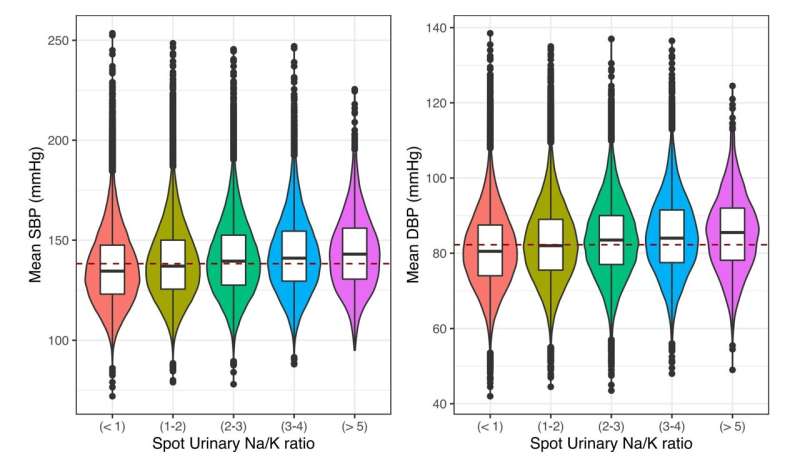This article has been reviewed according to Science X's editorial process and policies. Editors have highlighted the following attributes while ensuring the content's credibility:
fact-checked
peer-reviewed publication
trusted source
proofread
Major breakthrough in hypertension diagnosis could save billions

Hunter Medical Research Institute and University of Newcastle researcher Professor Murray Cairns, along with his Precision Medicine team, have discovered a way of predicting who will respond to blood pressure treatments to lower sodium in the body. Their findings were published this week in Circulation.
Professor Cairns says, "High blood pressure—or hypertension-related disease—kills up to 20 percent of people. At least 30 percent of the adult population has it—that's one in three Australian adults—and only 30 percent of those people get it under control."
"A 25% reduction in the prevalence of hypertension could save the Australian Government $34 billion per year," says Professor Cairns.
Professor Cairns and his team have figured out how to use each person's individual genetics to inform treatment.
"The way people respond to drugs is different. We can measure an individual's genetic risk of developing high blood pressure with respect to the physiological systems responsible—including kidneys, heart, or smooth muscle—and then target medications accurately," says Professor Cairns.
Some hypertension medications work to lower sodium—and subsequently blood volume—in the body. Professor Cairns says that while many people have a genetic predisposition to high blood pressure that is triggered or exacerbated by a high-salt modern diet, they will respond well to treatment that reduces sodium. He also says that for some people, salt is not a significant factor in their hypertension, so they may benefit more from treatments that target other biological aspects of their genetic risk.
With 80 percent of people ending up with some form of chronic disease and 20 percent with two or more, genetic insights driving precision medicine could have a massive impact on global health.
The team used real-world data from the UK biobank in order to measure the interaction between sodium-associated genetic scores, sodium levels, and blood pressure.
More information: William R. Reay et al, Utilising genetics to inform interventions related to sodium and potassium in hypertension, Circulation (2023). DOI: 10.1161/CIRCULATIONAHA.123.065394





















